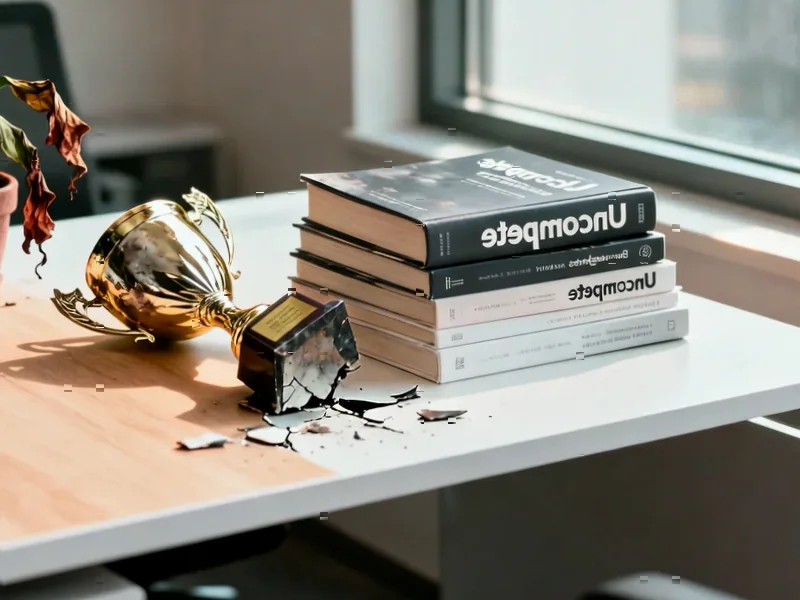According to Ars Technica, the Internet Archive recently celebrated archiving its trillionth webpage and was designated a federal depository library by Senator Alex Padilla, but these milestones mask years of bruising copyright battles that forced the removal of over 500,000 books from its Open Library project. Founder Brewster Kahle told the publication that while the Archive survived litigation that could have resulted in $400 million in damages from publishers and $700 million from music companies, the legal fights “wiped out the Library” and made the world “stupider.” The Archive settled both major lawsuits through confidential agreements that avoided bankruptcy but fundamentally altered its lending capabilities. Kahle believes large media companies wanted the Wayback Machine dead but it survived, though the Open Library’s revolutionary approach to e-book lending did not.
The New Digital Preservation Landscape
The Internet Archive’s legal saga represents more than just one organization’s struggle—it signals a fundamental realignment of how digital preservation will function in an era dominated by licensing rather than ownership. Where libraries traditionally operated on principles of permanent acquisition and interlibrary sharing, the digital realm increasingly favors temporary access models controlled by corporate rights holders. This shift has profound implications for how future historians, researchers, and citizens will access our digital heritage.
The Archive’s experience demonstrates that statutory damages provisions in copyright law create what legal scholars call a “chilling effect” that extends far beyond the courtroom. As library funding faces continued pressure, the risk calculus for digitization projects becomes increasingly conservative. Smaller institutions watching the Archive’s near-bankruptcy experience will think twice before launching ambitious preservation initiatives, particularly for materials where copyright status is ambiguous or rights holders are aggressive.
The AI Acceleration Factor
Kahle’s concerns about corporate control of information are intensifying just as artificial intelligence companies are creating unprecedented demand for training data. The same media companies that sued the Internet Archive are now simultaneously licensing content to AI firms while suing others for unauthorized use. This creates a paradoxical landscape where corporations seek maximum control over their intellectual property while AI systems increasingly centralize access to human knowledge.
The timing couldn’t be more critical. As federal support for libraries faces uncertainty and AI development accelerates, we’re witnessing a consolidation of information control that threatens the distributed, resilient nature of traditional library systems. Kahle’s observation that societies in decline tend to see library contraction should alarm anyone concerned about the health of our information ecosystem.
Democracy’s Library as Strategic Pivot
The Archive’s pivot toward Democracy’s Library and federal depository status represents a shrewd strategic adaptation. By focusing on government publications and research, the Archive positions itself in legally safer territory while continuing its mission of broad access. This approach leverages the unique status of government works while creating valuable infrastructure for Wikipedia and other research tools.
However, this strategic retreat from more contested territory like commercially published books represents a significant narrowing of the digital commons. The vision of a comprehensive digital Library of Alexandria—Kahle’s original ambition—becomes more distant when entire categories of knowledge remain under corporate control. The Archive’s experience suggests that future digital preservation efforts will increasingly fragment along legal rather than mission-driven lines.
The New Fair Use Frontier
What the Internet Archive’s legal battles clarify is that we’ve reached the boundaries of current fair use doctrine in the digital age. As legal scholarship on controlled digital lending continues to evolve, the Archive’s experience demonstrates that courts are drawing bright lines between different forms of digital access. The loss didn’t eliminate all controlled digital lending, but it established clear limits on how far libraries can push the envelope.
Looking forward, the emergence of AI presents both threat and opportunity for fair use. The same legal frameworks that constrained the Internet Archive’s lending model are now being tested by AI companies training models on copyrighted works. The outcome of these parallel legal battles will determine whether we develop a more flexible fair use doctrine capable of accommodating technological innovation, or whether information access becomes increasingly balkanized.
Long-Term Cultural Consequences
The most concerning aspect of the Internet Archive’s retrenchment isn’t the immediate loss of access to half a million books, but the precedent it sets for future preservation efforts. When Kahle warns that “the world became stupider” from these losses, he’s referring to the erosion of what librarians call “browsability”—the serendipitous discovery that occurs when researchers can explore related materials without artificial barriers.
As libraries increasingly become subscription services rather than repositories, we risk creating what historian Robert Darnton called “a digital dark age”—not from technological failure, but from legal and economic constraints that prevent comprehensive preservation. The Internet Archive’s survival is cause for relief, but its constrained future should prompt serious conversation about how we preserve our digital heritage in an age of corporate control.




